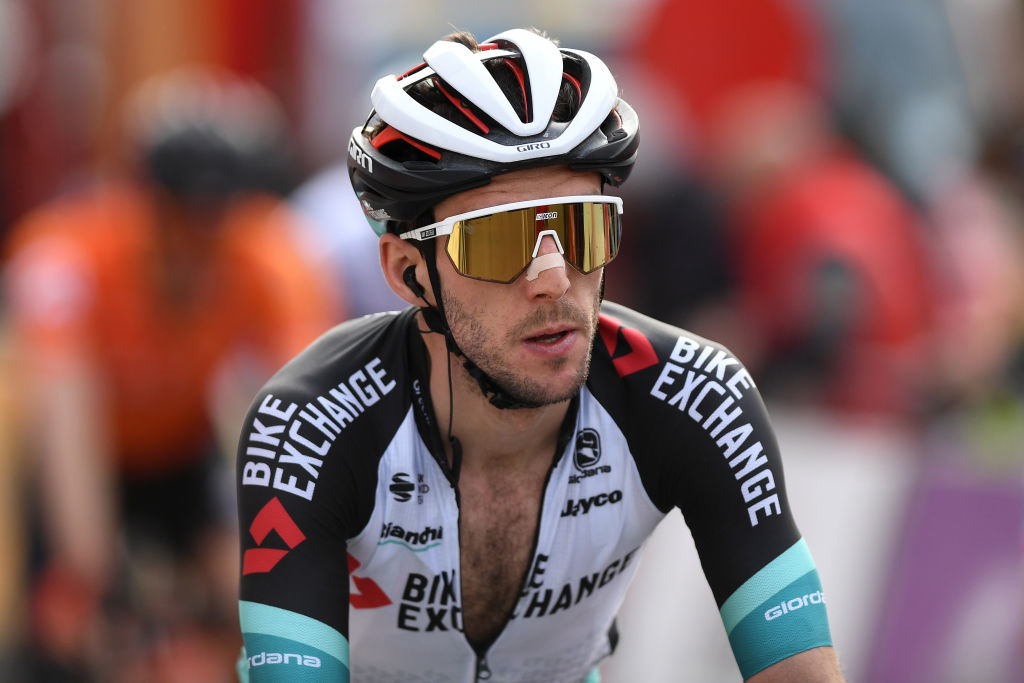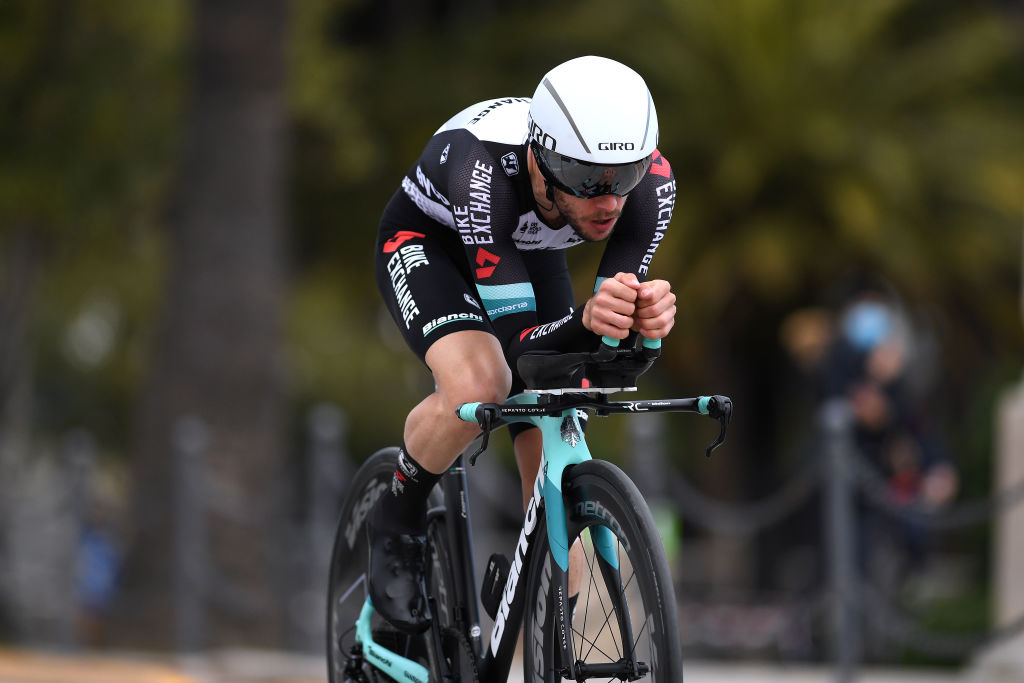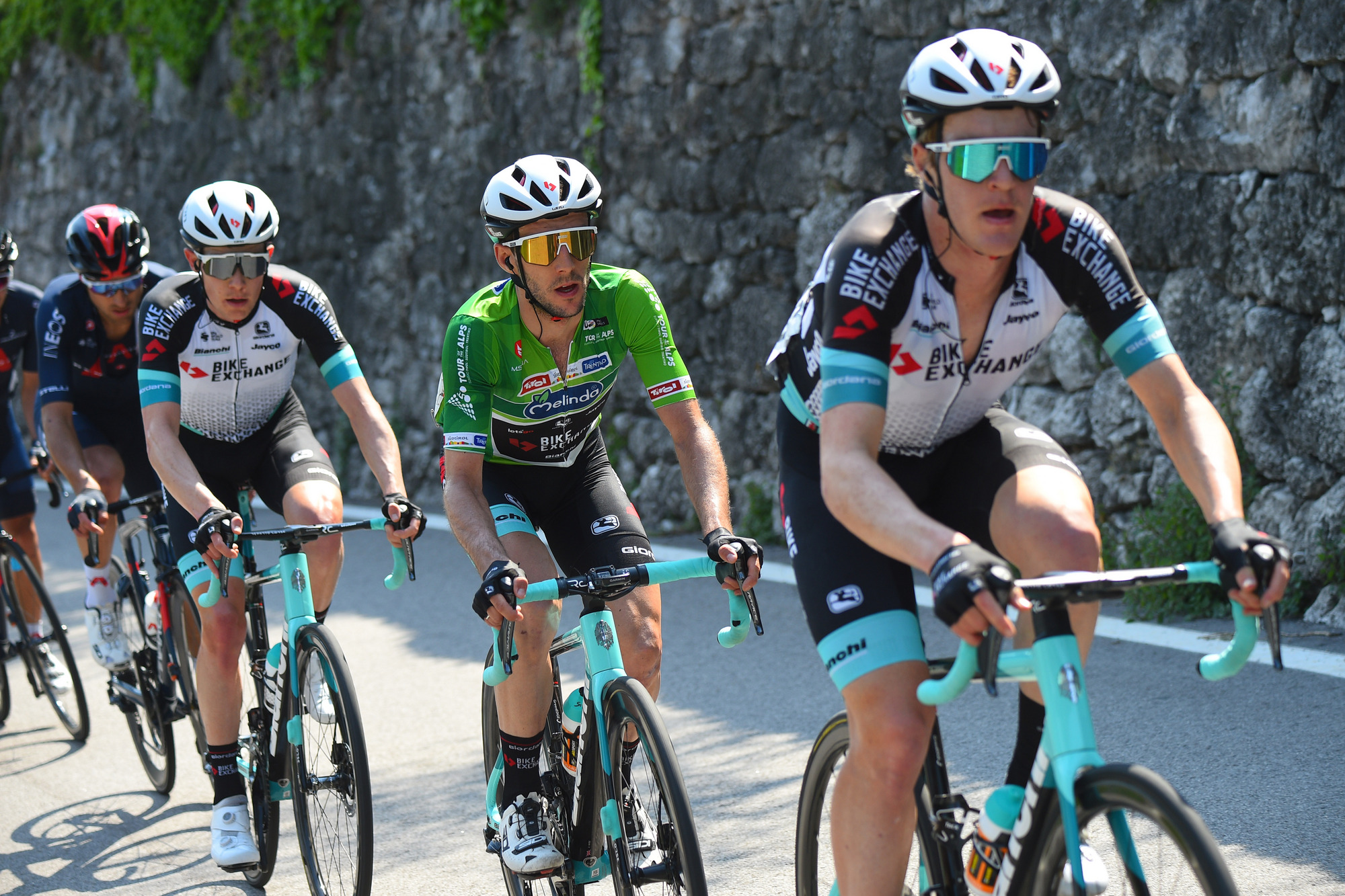Simon Yates: I've had bad luck and made some mistakes but I don't have a point to prove at the Giro d'Italia
Q&A with the Team BikeExchange leader as he heads to the Italian Grand Tour

It’s fair to say that Simon Yates has a complicated relationship with the Giro d’Italia.
After all, it’s where he’s enjoyed a huge amount of success with three stages and a highlight reel of maglia rosa moment. But the British climber has also painfully experienced the other side of the coin in the Corsa Rosa.
In 2018, the year he won three stages, he dramatically cracked while in the lead and fell down the overall standings with just days remaining, while a year later he failed to make a significant challenge. In 2020, just when it looked like he was about to rekindle hopes of a second Grand Tour win he contracted COVID-19 and was forced to leave the race.
This time around Yates looks to be in sparkling form with a dominant win in the Tour of the Alps and a balance of caution and confidence in equal measure.
In this exclusive interview with Cyclingnews the 2018 Vuelta España winner talks about previous mistakes, not peaking too soon, the Giro route, and how he doesn’t have a point to prove to anyone but himself.
Cyclingnews: How’s the recon gone for you? We keep seeing you on recon rides. You must have ridden most of the Giro by now.
Simon Yates: I haven’t ridden as many as you think. The team as a whole has looked at a lot of stages, especially the directors and they’ll know almost every stage bar one or two. I’ve been combining my racing with recon, so after Tirreno I did a couple of stages there and then after the Tour of the Alps I did a few more. It’s been quite easy in a productive way. I did stage 6 and then we did stage 17 the other day, which was way harder than I expected actually, and we’ve done a bit of the gravel stage but not all of it. We did that after Strade Bianche and there are a few more in the bag.
CN: This will be your fourth Giro. What’s your overriding impression of the route?
Get The Leadout Newsletter
The latest race content, interviews, features, reviews and expert buying guides, direct to your inbox!
SY: I think that the route looks nice. Obviously, the gravel stages throw a bit of a spanner into the works with the one stage on the small gravel climb and then the proper gravel stage. That throws another challenge into it in terms of trying to stay safe and avoiding any mishaps. Other than that, it feels like a typical Giro route with a hard final week, a very challenging second week, and then the odd test here and there in the first week. It looks good from that angle and the stages that I’ve looked at so far. The ones I’ve looked at are tough.
CN: We spoke to George Bennett last week and he pointed out that there were a few stages that might not look too bad on paper but once you get to them there could be a few tricky moments or ambush points.
SY: You’ve just got to look at some of the climbing that we’ve got to do on some of those stages. It’s 3,000 plus metres on a lot of those days and they’re not long stages. It’s by no means an easy race and those transfer stages are the ones that you need to be really switched on for every moment. Those intermediate stages are hard.

CN: We recently ran our form guide and you’re top. You’re the man to beat.
SY: Alright, stop putting the pressure on.
CN: Would you agree with that, are you the number one favourite?
SY: I said this to someone the other day, not a journalist, someone from the team: the Tour of the Alps and the Giro are very different races. The Alps are very short stages that are raced aggressively, and I’m good at that. I’m not going to shy away from that, those really explosive stages. I enjoy them. Whereas the Giro is more of a marathon. I know that’s a cliché but it’s true. You’ve really got to save your energy because we’ve all seen it in the final week, myself in a really personal sense, that if you’re strong in the last week you can really make a big difference. We’re still a almost away from that, and I’m wary of that. I’m not taking this as an easy race just because I had good legs in the Tour of the Alps. Time will tell.
CN: So... who is the favourite then?
SY: I don’t know. Everyone is coming from different places. There were some guys at the Tour of the Alps, there are some guys who have hardly raced at all. I think that Egan Bernal hasn’t raced since Tirreno. He’s had a big block of training. Landa hasn’t raced since the Basque Country, which isn’t super long ago, and then you’ve got the Deceuninck-QuickStep boys: Remco and Almeida haven’t raced for a while. So guys are coming in from different places and it’s hard to say. I think that time will tell and we’ll see really.
CN: Could preparation have gone any better? I’m just looking at how you’ve nicely built up to form with Tirreno and Catalunya and then a big win in the Tour of the Alps.
SY: I’ve had good sensations all year. Obviously, it was a bit hit and miss earlier in the year in Strade Bianche, where I had a bit of a crash. That hampered me a little bit going into Tirreno, where I was good on some stages but then not so good on others. Then I had Catalunya where I was really consistent and to me, I felt like I was on the right path and where I needed to be. Then I had a good training camp with the team in Andorra.
Obviously, Tour of the Alps went well for me but also for the team. They worked really well and gelled and that’s a really important part of a Grand Tour squad. They know how I like to work and we gained experience together on how I like to race when I’m in the lead. They know how I like to do things and where I like to sit in the bunch. It’s been good so far, so the thing I’m most worried about right now is getting sick, a crash, or something like last year.
CN: You’ve got a strong team around you. Kangert has been top-ten, Nieve, everyone knows what he can do and then there are guys who can keep you out of trouble on the flat stages.
SY: I’m really happy with the team. Like I said, we gelled really well in the Tour of the Alps and we just need to carry that momentum as far as we can in the Giro. As I said before the Tour of the Alps and the Giro are very different races. The longest stage in the Alps is one of the shortest stages in the Giro, so it’s a lot easier to control a 160km stage than it is a 260km stage. We just need to be wary of that and not get too excited early on.

CN: You mentioned the final week and some will look at the Tour of the Alps and think you’re winning at the end of April but you need to be winning in the end of May and then they’ll be wondering if you’ve come to form too quickly. Are you concerned or are you thinking ‘well, I wasn’t even at 100 per cent in the Tour of the Alps’.
SY: At the end of the day, I can’t change anything now. I can’t just take two weeks off and then expect to be good in the Giro. I don’t think that I’ve made a mistake. The form is good and I don’t think it’s going anywhere soon. As I said, I’m more worried about getting sick or having a crash. Some guys haven’t even tested their form so they don’t even know where they are at. I know where I’m at and that’s good for the head because I know where I’m at and I know that my form is good. For me, it’s more about managing the expenditure of energy during the first and second weeks and then trying to have something left of the final week to be able to do something then.
The second week is going to be really tough but stage 16 for me looks like the hardest of the race. It’s high altitude, there’s a lot of climbing, and it looks filthy. That’s in the second week so it’s all a balancing act. It’s all well and good me sitting here and talking about that final week but we don’t know what’s going to happen before then. The form is there. I just want to have a clear run at this Giro. I’ve had some bad luck and made some mistakes in the last few years so all I want is a clear run and the chance to ride my own race.
CN: Everyone can look at the bad luck that you had last year with COVID-19 but you mentioned mistakes from the past. What were there?
SY: Like getting COVID?
CN: Well, that’s not really a mistake but I mean in a Grand Tour sense.
SY: Just the training side of things, the final preparation, the tapering into races, and the managing of effort. They’re just small things but they all add up over three weeks. This year, I think I’ve finally got it right and I’m confident in what I’ve done. So we’ll see. It’s hard to give a good answer because each race is different but we’ll see.
CN: Does it help that Ineos are bringing such a strong team to the race?
I think you’d prefer it if they didn’t bring a strong team at all but I just mean in the sense that a strong Ineos will have a better chance of controlling the race and calming it down at times. Maybe that condenses the action or would you want a more expansive race.
SY: The thing about the Giro is that it’s such a hard race to control. We’ve seen with that team in the past, they’ve run the template at the Tour where they’ve controlled the race and they’ve not been able to do it successfully, before the last few years anyway.
There’s something about the Giro, how the stages pan out, and the weather. It makes the Giro a hard race to control. If they want to control it then please do. It makes it a lot easier for everyone but I don’t know their game plan. I’m not part of that team but I’m sure they don’t want to ride the front, it’s hard to control.
CN: Every Giro is different, every year is different but what is the significance of this race in terms of your career? You’ve won a Grand Tour so you don’t have anything to prove in that sense but what does represent in terms of where things stand for you?
SY: I don’t think that it changes anything. I’m still trying to be the best that I can be. I never feel like I’ve got a point to prove. I’m just going to try and do my best. If that’s not good enough, it’s not good enough. I try and do everything right all year. So it’s not through a lack of trying if something goes wrong. The fans and public watch on TV but I don’t have anything to prove to anyone.
Daniel Benson was the Editor in Chief at Cyclingnews.com between 2008 and 2022. Based in the UK, he joined the Cyclingnews team in 2008 as the site's first UK-based Managing Editor. In that time, he reported on over a dozen editions of the Tour de France, several World Championships, the Tour Down Under, Spring Classics, and the London 2012 Olympic Games. With the help of the excellent editorial team, he ran the coverage on Cyclingnews and has interviewed leading figures in the sport including UCI Presidents and Tour de France winners.
